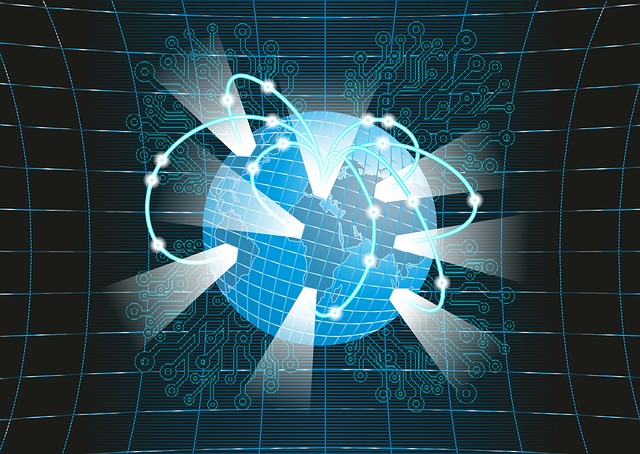Cloud-based AI platforms are transforming industries like hospitality and food service with scalable, flexible solutions that streamline complex tasks. For chefs, this means enhanced kitchen automation where AI uses machine learning to manage ingredients, optimize cooking processes, suggest preparation methods, and determine portion sizes based on large datasets. By automating repetitive tasks, AI allows chefs to focus on creativity while ensuring consistent food quality. These solutions also facilitate real-time collaboration among kitchen staff, increasing productivity and reducing waste. AI kitchen automation offers significant advantages, such as improved recipe management and automated robots, but it also presents challenges like data privacy concerns and unpredictable cooking variables, requiring robust data infrastructure for successful integration.
In today’s digital era, cloud-based AI platforms are transforming businesses across industries. This article explores the potential of AI kitchen automation for chefs, focusing on how these innovative tools streamline operations and enhance customer experiences. We’ll delve into the benefits and challenges of implementing AI in food service while providing insights into its growing role, from efficient meal preparation to personalized dining experiences. Understanding cloud-based AI platforms is crucial for businesses aiming to stay competitive.
- Understanding Cloud-Based AI Platforms for Businesses
- The Role of AI in Kitchen Automation for Chefs
- Benefits and Challenges of Implementing AI in Food Service Operations
Understanding Cloud-Based AI Platforms for Businesses

Cloud-based AI platforms are transforming the way businesses, especially in sectors like hospitality and food service, operate. These platforms offer a scalable and flexible approach to implementing artificial intelligence, making complex tasks simpler and more efficient. For chefs, cloud AI can revolutionize kitchen automation, from streamlining ingredient management to optimizing cooking processes. By leveraging machine learning algorithms, these systems can analyze vast datasets, including recipes, ingredient properties, and historical usage, to suggest optimal preparation methods and portion sizes.
This technology enables chefs to focus on creativity and culinary arts while the AI handles repetitive tasks, ensuring consistency in food quality. Cloud-based solutions also facilitate collaboration, allowing multiple kitchen staff to access real-time data and insights. With its ability to adapt and learn, AI automation can significantly enhance productivity and reduce waste, making it a valuable asset for modern restaurants looking to stay competitive in the culinary landscape.
The Role of AI in Kitchen Automation for Chefs

Artificial intelligence (AI) is transforming the culinary world, and its impact on kitchen automation for chefs is significant. AI-powered platforms offer a range of tools that can streamline and optimize various tasks in a professional kitchen. From smart recipe management systems to automated food preparation robots, these technologies are revolutionizing how chefs work. With AI, chefs can efficiently handle complex menus, reduce human errors, and enhance overall productivity in the kitchen.
In an AI-integrated kitchen, algorithms can analyze vast datasets of ingredients, flavors, and cooking techniques to suggest innovative recipes or optimize existing ones. Moreover, computer vision systems can monitor food preparation, ensuring precise portioning and consistent quality. Automated machines can chop, mix, and cook, freeing up chef’s time for more creative aspects of meal preparation. This technology promises to elevate culinary standards, reduce kitchen fatigue, and inspire new dining experiences.
Benefits and Challenges of Implementing AI in Food Service Operations

Implementing AI in food service operations offers a myriad of benefits, particularly with cloud-based AI platforms that enable efficient and accurate tasks. These platforms can automate repetitive jobs like inventory management and recipe scaling, freeing up chefs to focus on creative aspects and enhancing overall kitchen productivity. AI kitchen automation for chefs also ensures precise measurements and consistent dish preparation, leading to improved food quality and customer satisfaction. Moreover, AI algorithms can analyze sales data and predict trends, helping businesses optimize menus and reduce waste.
However, challenges exist when integrating AI into the culinary realm. Data privacy and security are paramount concerns, as cloud-based platforms require sensitive information like ingredient sourcing and pricing. Additionally, while AI excels at pattern recognition, it may struggle with unpredictable variables in cooking, such as seasonal ingredient availability and individual taste preferences. Overcoming these hurdles requires careful consideration of data infrastructure and continuous fine-tuning of AI models to adapt to the dynamic nature of food service operations.
Cloud-based AI platforms are transforming food service operations by introducing efficient kitchen automation for chefs. These technologies offer numerous benefits, such as improved accuracy, optimized task management, and enhanced customer experiences. However, implementing AI in food service comes with challenges like initial costs, data privacy concerns, and the need for employee training. As AI continues to evolve, businesses must navigate these considerations to leverage its potential and stay competitive in the market of AI kitchen automation for chefs.
